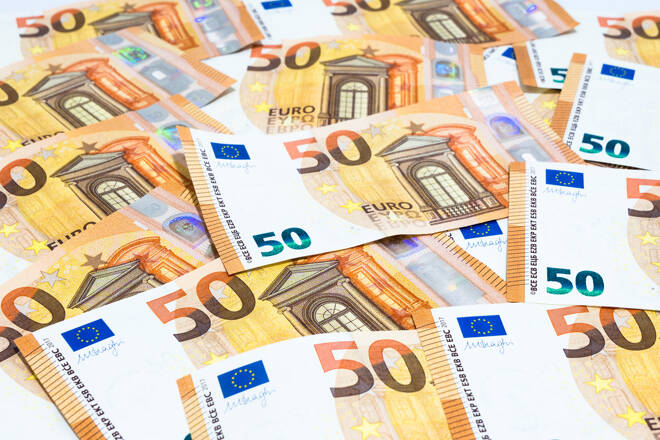Advertisement
Advertisement
German 4th Quarter GDP Revisions Support the DAX30 and the EUR
By:
German 4th Quarter GDP revisions support the EUR and the DAX. Economic uncertainty caps the market impact, however.
Following a busier Asian session, it was another relatively quiet day on the Eurozone economic calendar.
German 2nd estimate GDP numbers for the 4th quarter were in focus this morning.
Better Than Expected
In the 4th quarter, the German economy grew by 0.3%, quarter-on-quarter. This was an upward revision to a 1st estimate growth of 0.1%. In the 3rd quarter, the German economy had expanded by 8.5%.
Year-on-year, the German economy contracted by 2.7%, revised up from a 1st estimate 2.9% contraction. In the 3rd quarter, the German economy had contracted by 3.9%.
According to Destatis,
- The second wave of the COVID-19 pandemic slowed the economic recovery in the final quarter of 2020.
- Household final consumption expenditure was down 3.3%, quarter-on-quarter.
- Government final consumption expenditure declined by 0.5%, following increases in the previous 3 quarters.
- Gross fixed capital formation in construction (+1.8%) contributed to growth in the 4th quarter
- Foreign trade increased at the end of the year and had an upward effect on GDP. In Q4, exports of goods and services were up 4.5%, quarter on quarter. Imports increased by a lesser 3.7%
Market Impact
Ahead of the stats, it was a mixed start to the day for the EUR, which had risen to an early high $1.21663 before falling to a pre-stat low of $1.21441.
Upon the release of the inflation figures, the EUR moved from $1.21568 to a post-stat high $1.21747 before easing back.
At the time of writing, the EUR was up by 0.11% to $1.21631.
The upward revision also supported the DAX, which peaked with a 0.93% rise in response before easing back. At the time of writing, the DAX was up by 0.58%.
While the numbers were market positive, the upside was limited, however. Economic uncertainty continues to linger amidst extended COVID-19 containment measures.
Next Up
Day two of FED Chair Powell testimony and new home sales figures. Don’t expect too much direction from real estate sector numbers, however.
About the Author
Bob Masonauthor
With over 28 years of experience in the financial industry, Bob has worked with various global rating agencies and multinational banks. Currently he is covering currencies, commodities, alternative asset classes and global equities, focusing mostly on European and Asian markets.
Advertisement
